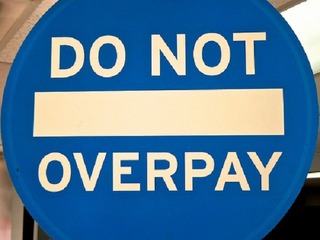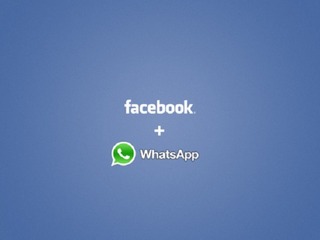Digital health funding declines for the third year in a row
AI-enabled digital health startups raised $3.7B, 37% of total funding for the sector
Read more...
When Facebook and WhatsApp got regulatory approval from the European Union to complete their merger this past weekend, that was the final hurdle for the two companies, it was only a matter of time before their merger would finally be done.
And now the moment has finally arrived: the deal for Facebook to buy mobile messaging app WhatsApp has now officially closed, it was revealed with a filing with the Securities and Exchange Commission.
The deal was first announced back in February, and it included $4 billion in cash, along with approximately $12 billion worth of Facebook shares. In addition, the agreement also provided for another $3 billion in restricted stock units, which are to be granted to WhatsApp's founders and employees, and which will vest over four years subsequent to the closing of the deal.
The new filing revealed that 177,760,669 shares of Facebook’s Class A common stock and $4.59 billion were awarded in exchange for all outstanding shares of WhatsApp capital stock and options to purchase WhatsApp capital stock to be cancelled. In addition, another 45,941,775 restricted stock units were awarded to WhatsApp employees by Facebook.
As per the deal, WhatsApp founder and CEO Jan Koum has now joined the board of directors at Facebook. It was also revealed that he would have a base salary of $1, the same as Facebook CEO Mark Zuckerberg, along with a signing bonus of 24,853,468 restricted stock units as incentive for joining. Koum is not eligibility for the company’s bonus plan.
Koum has no official title at Facebook and is joining the company with "no fixed term of employment as part of the arrangement." However, it seems likely that he will still around.
"All indicators are that he wants to stick around to continue to build WhatsApp as a separate brand under the growing Facebook umbrella," it says in the filing.
Now that WhatsApp is officially a part of the Facebook family, it will be Facebook’s second messaging app. In March 2011, Facebook acquired Beluga, a free and private group messaging service for iPhone and Android devices, for an undisclosed amount. Beluga was eventually transformed into Facebook Messenger, which was launched in August 2011.
The two apps serve different functionalities, however, as Messenger is used to communicate specifically to other Facebook users, while WhatsApp is a replacement for SMS that will now broaden user ability to communicate beyond their friends list.
Ultimately, the deal ties into the company's announced goal to create a set of stand-alone apps for mobile, which also led to its decision to force Facebook users to download a separate app in order to use its instant messenger service via mobile. In addition, the company purchased fitness tracking app Moves, released a stand-alone reader called Paper and debuted its Snapchat competitor called Slingshot.
The Santa Clara, California-based WhatsApp was founded in 2009, and raised $8 million in funding from Sequoia Capital in April 2011. The company reached 500 million active users in April.
(Image source: digitaltrends.com)
AI-enabled digital health startups raised $3.7B, 37% of total funding for the sector
Read more...OXcan combines proteomics and artificial intelligence for early detection
Read more...Nearly $265B in claims are denied every year because of the way they're coded
Read more...



